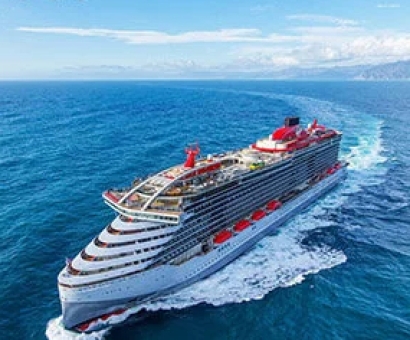
HeatPower 300 Marine will assist shipowners and operators to increase their ships energy efficiency, reduce fuel consumption and decrease carbon emissions, thus achieving regulatory compliance and helping to make sustainable shipping a reality.
As proven in Climeon’s existing product, the HP 150, the Climeon HeatPower 300 will continue to deliver world-leading conversion efficiency at low temperatures and seamless automation due to its award-winning Climeon Live control system. Moreover, the Climeon HeatPower 300 has a modular construction, which allows for custom delivery of the product, optimized for the project specific ship design and operational profile.
"We are thrilled to introduce Climeon’s HeatPower 300 Marine WHR product to the cruise industry at the world’s premier marine cruise event, Seatrade Cruise Global. As shipowners, shipyards and design houses strive to make cruise ships more energy efficient, we’re excited to present a maritime-optimized waste heat recovery platform that combines environmental, fiscal and operational benefits,” said Fredrik Thoren, Executive Vice President, Head of Marine, Climeon.
Delivered as a solid, compact unit containing all the requisite components for efficient low-temp ORC waste heat recovery, Climeon HeatPower 300 can be integrated swiftly and require minimal maintenance, thus providing low OPEX costs and an attractive ROI.
The Climeon HeatPower 300 Marine is designed for the harsh and challenging environment at sea. The product can generate carbon-free electricity from waste heat at temperatures as low as 85 degrees Celsius, which enables clean energy to be generated solely from onboard jacket cooling water.
Designed to be easily integrated on both new-build vessels and existing ships, the Climeon HeatPower 300 Marine gives shipowners the opportunity to meet increasing EEDI, EEXI and CII regulations while minimizing expenditure, avoiding operational disruption and future-proofing their vessels. By doing so, Climeon’s ORC WHR system, HeatPower 300 Marine, can increase the energy efficiency of new-build ships, current fleets and facilitate a new era of low-carbon shipping.

